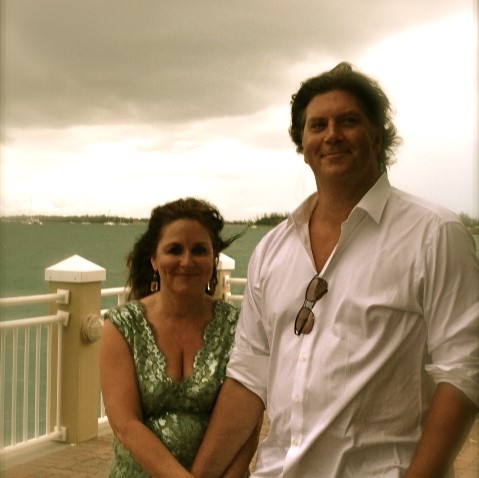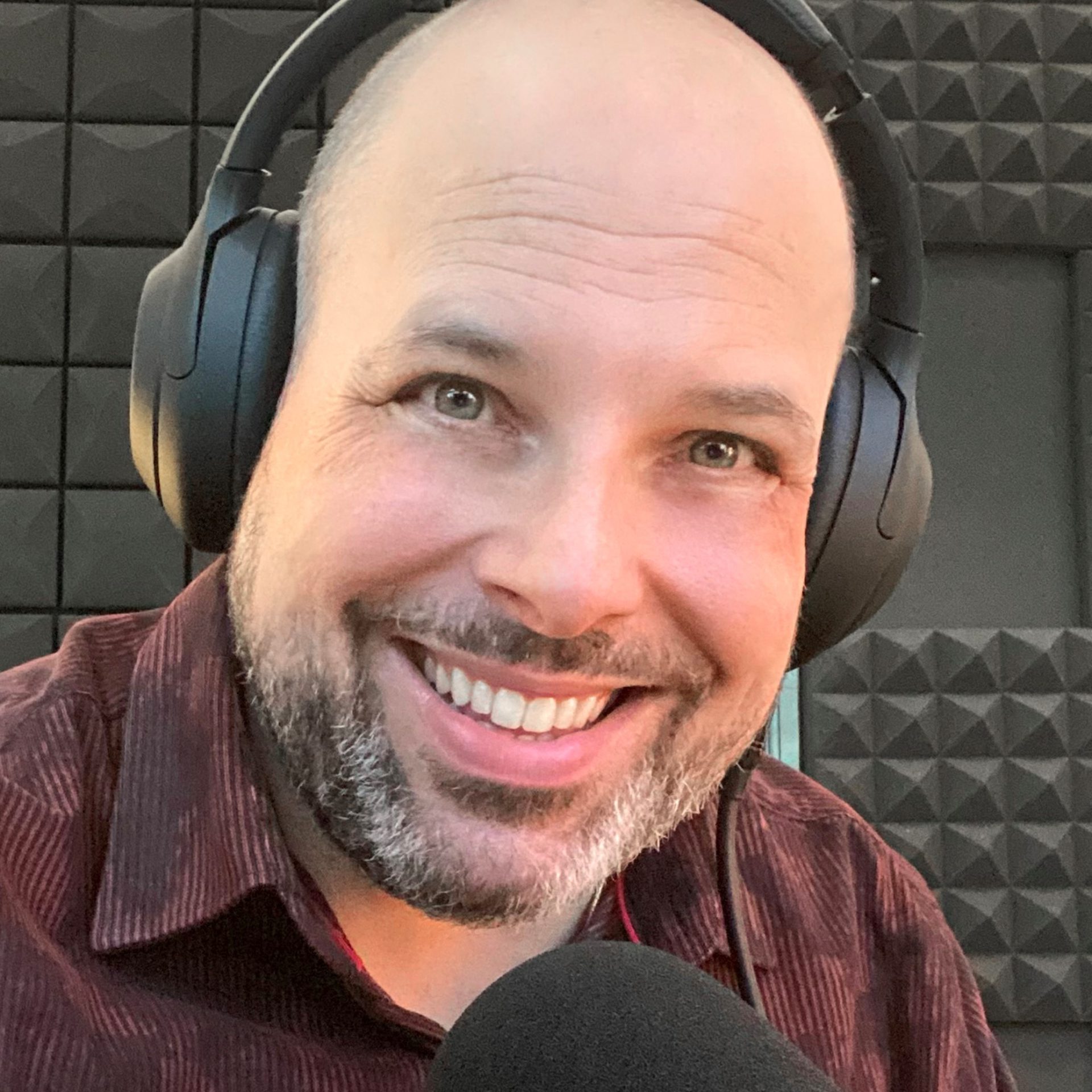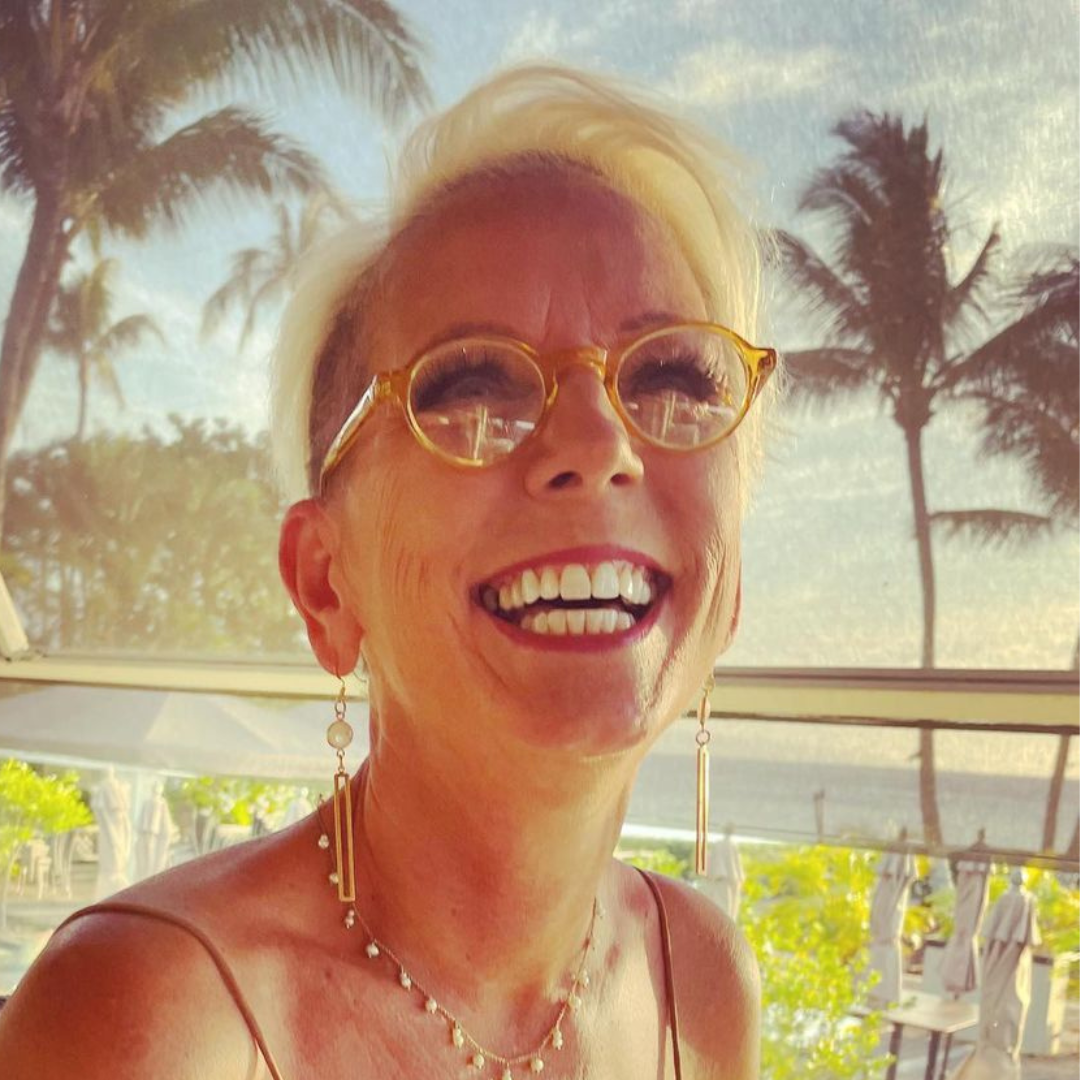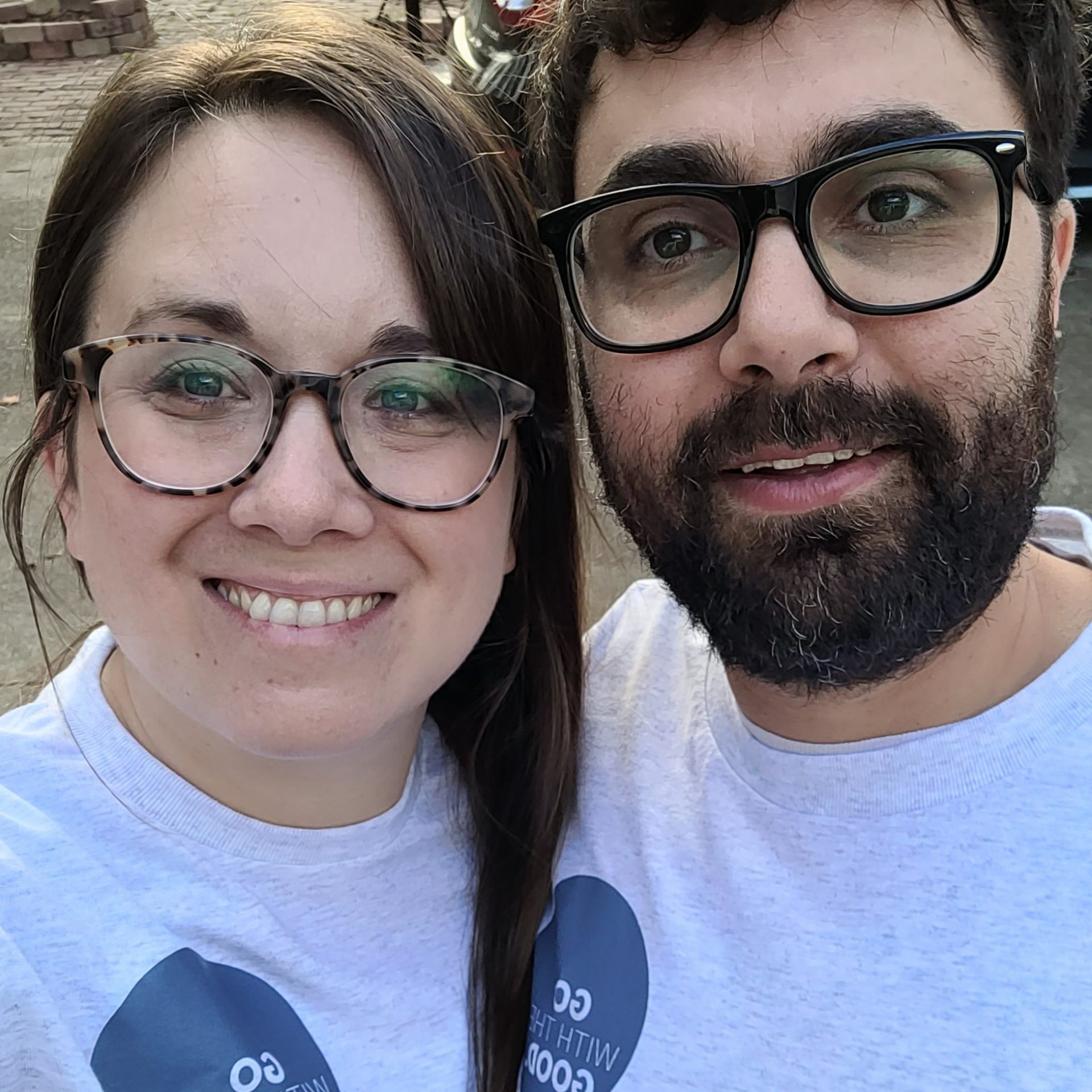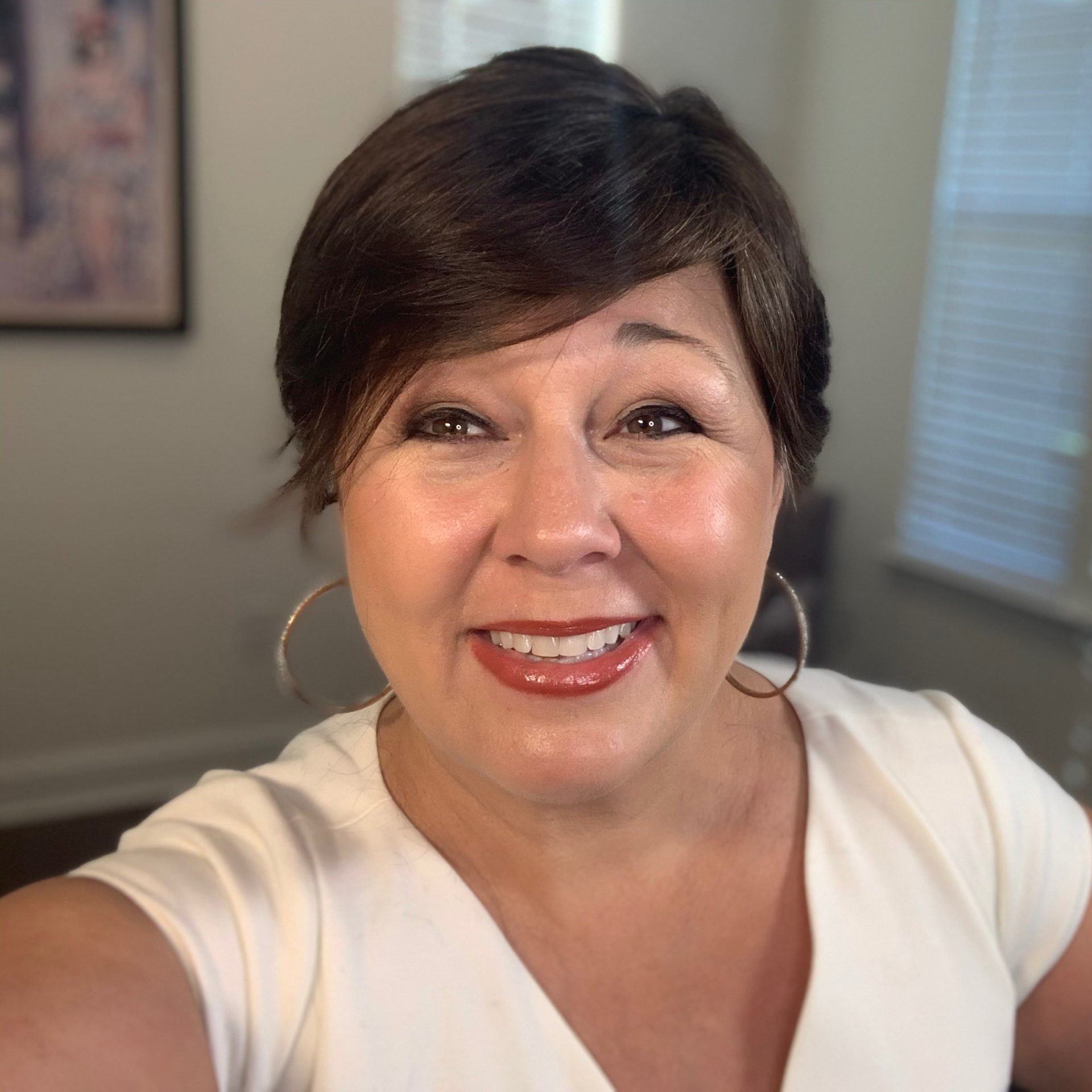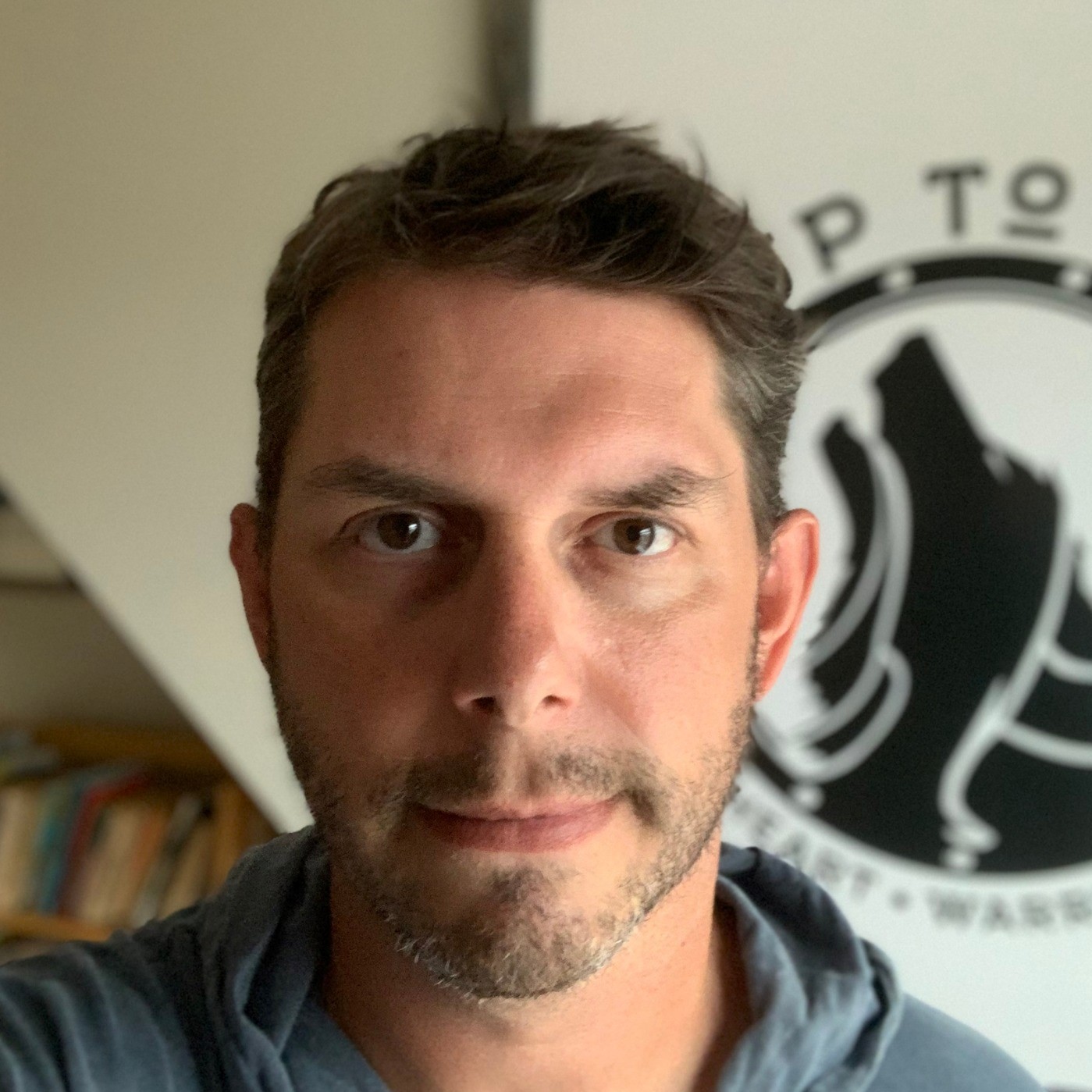In Sickness and in Health | Cancer Friends
Featuring Sonya Lea & Richard Bandy
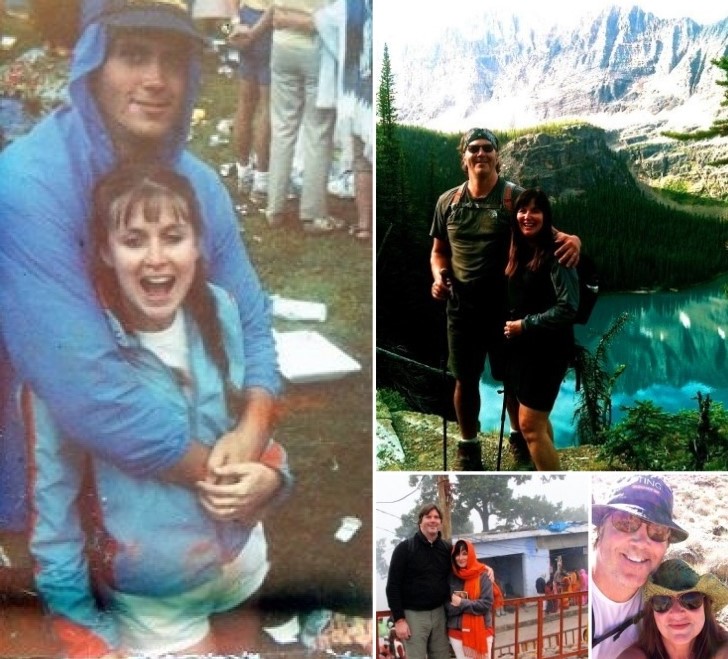
The Patient Story’s series “Cancer Friends” features Andrew and Esther Schorr. They co-founded PatientPower.info, a resource for other cancer patients and caregivers to help them through their diagnosis and treatment.
Join us every Sunday for a new “Cancer Friends” episode, airing on our video channel here!
This segment focuses on Sonya Lea and Richard Bandy, who share their incredible experience of learning to love each other again. Richard’s surgery to remove his pseudomyxoma peritonei (PMP) was successful, but he was left with a major complication: memory loss.
Richard and Sonya discuss finding each other again, writing about the experience, and the importance of grieving who someone used to be.
This interview has been edited for clarity. This is not medical advice. Please consult with your healthcare provider for treatment decisions.
It’s phenomenal to be able to share life, period, after something that takes you so close to death.
Sonya Lea
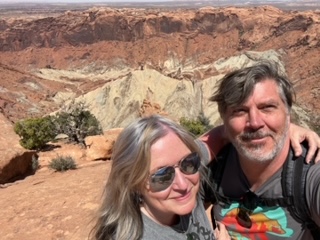
She found that she fell in love with the new person, the new Richard, as much as I fell in love with her.
Richard Bandy
Introduction
Andrew Schorr, The Patient Story: Hello, I’m Andrew Schorr. Welcome to Cancer Friends. Here’s my very best friend —
Esther Schorr, The Patient Story: Esther Schorr.
Andrew, TPS: We’ve been married 37 years now and really enjoy the people we meet. We thought it would be important, related to cancer, to talk about love. It’s helped me, Esther.
Esther, TPS: It’s helped me, too.

Andrew, TPS: We want you to meet a couple we’ve come to know from Banff, Alberta, Canada, Richard Bandy and Sonya Lea. They’ve been married for how long?
Richard: 41 years.
Esther, TPS: Congratulations.
Andrew, TPS: You’re so young looking!
Sonya: Thank you. We were young and foolish when we got married.
Esther, TPS: Aren’t we all?
Andrew, TPS: We have a lot to talk about. They were living in Seattle. Richard, in 2000, was diagnosed with a very rare cancer, with “jelly belly,” mucus all through his abdomen, and he ended up having surgeries and experimental surgery as well.
But it also led to a complication where he lost his memory. Imagine that.
What was the impact as a care partner?
Esther, TPS: As I understand it, Richard came out of the trauma of all of this and didn’t remember anything. You had been married for a while already. As his partner and care partner, how did that impact you?
Sonya: I think we’d been married for 19 or 20 years when he had the surgery that caused the anoxic insult due to a bleed, which then caused traumatic brain injury. Initially, when he was in the hospital, I would ask the doctors and nurses about what was going on, and they thought that it was just the medication that he was taking.
That’s reasonable. We have pain medications that are kind of diluting our ability to stay in touch with reality. But then after a period of a week, maybe even less than a week, it started to be clear to me that something was really different in his personality.
He was extroverted and very verbal before the operation. He was really withdrawn, really emotional, and had — I know this sounds strange to say —kind of an angelic sense around him. He was very innocent, almost like he’d been moved back to a childlike state.
That’s when I started to ask lots of questions. I realized that it wasn’t just the drugs that were operating on him. Something else was happening. It set us out on a really different trajectory to find a neuropsychologist, get some testing done, go to a neurologist, see if we could find anything physical that was happening, and then eventually get this diagnosis.
He had had both long-term and short-term issues with memory, meaning that he didn’t remember a good majority of our past. I would say maybe 1 or 2 things was all that he remembered from before. Then he also had a difficult time creating memory and holding on to it.
We were in a really completely different situation without understanding how long it was going to take to resolve initially. Of course, I’m completely innocent also at that time, [thinking], “Well, maybe this will just take a year to come back from.” [I was] not realizing the extent of the damage or what a real recovery was going to be like.
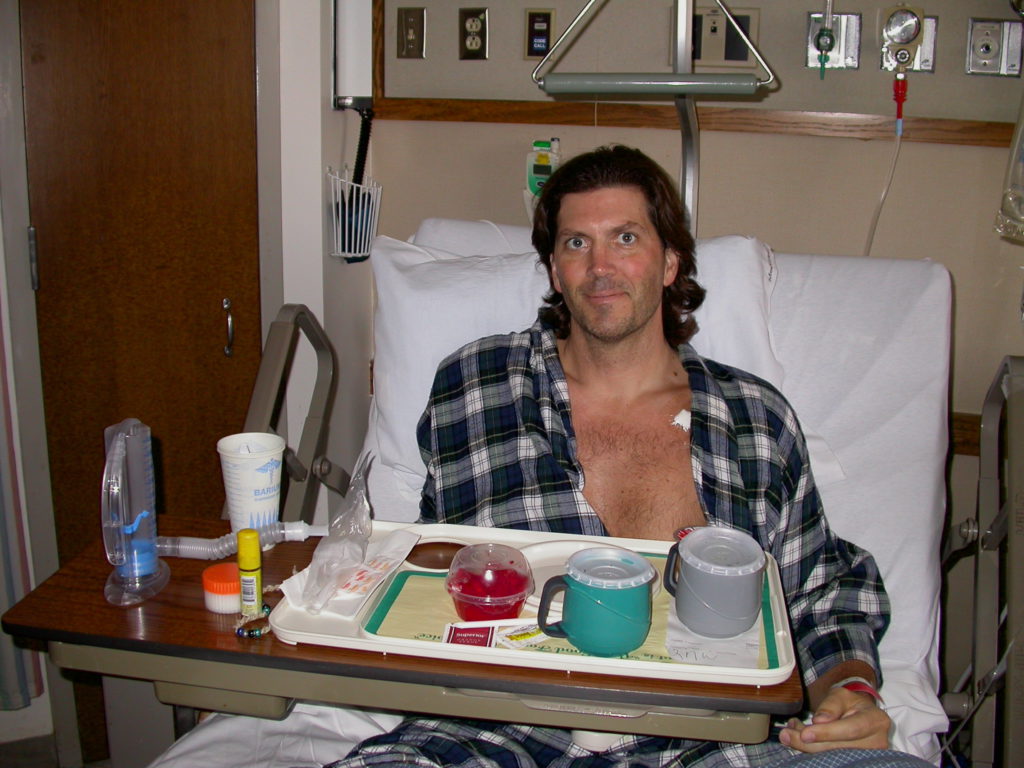
Finding each other again
Esther, TPS: In all of that, this is the man that you loved and love. I’d love to hear what the two of you have to say about the bond you had. Now you’re going to go through this other journey of essentially finding each other again.
Richard: I will say that initially the first 6 months, even the first year, I was such a neophyte, such a newborn sort of person. I think I just kind of imprinted on Sonya as the person that loves me, and so I love her. There was very much that little baby bird sort of idea right at the start, and that continued for quite a while for me.
Sonya was completely responsible for my care. For me, she was everything to me. It was years before I kind of had more of my independent thought and was able to actually rebel against some of the things that I didn’t agree with at the time. For years, it was just a matter of… I don’t know. She was everything for me.
Andrew, TPS: She probably still is everything for you. I know for Esther, when I was diagnosed with leukemia, that was pretty devastating. When I was diagnosed with the second cancer, that added insult to injury.
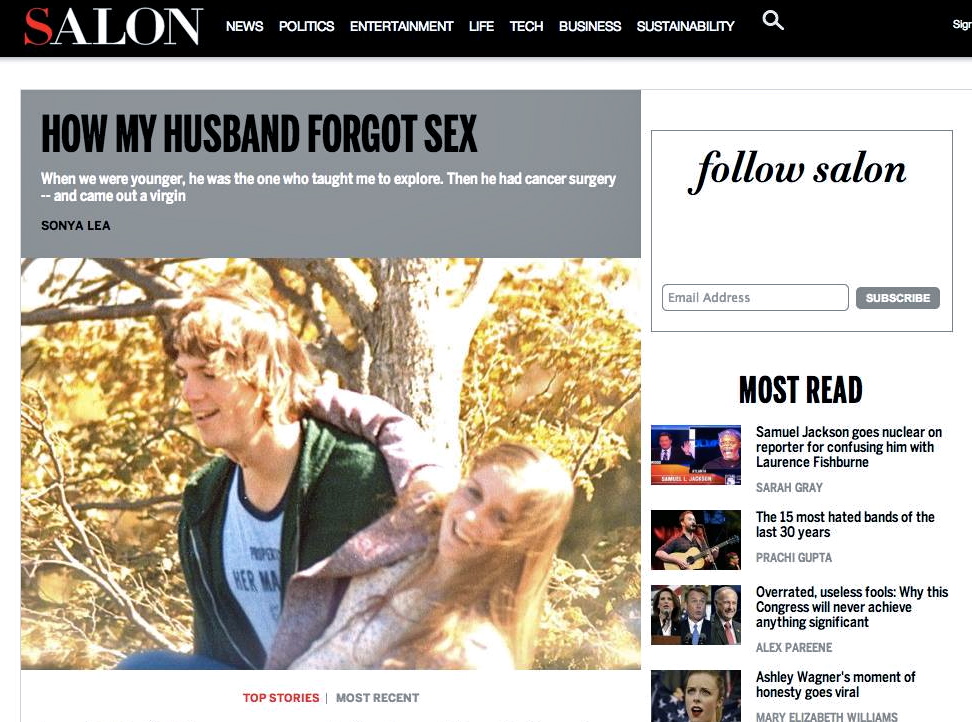
Coping with your partner’s memory loss
Andrew, TPS: How did you cope, and how would you say love propelled you to stay in the game? Let’s face it, there are people affected by cancer where someone leaves. You dove in.
Sonya: In brain injury, those statistics are fairly high. I think that 60% of people where brain injury happens leave within the first year afterwards. There’s just so much to cope with in terms of the personality changes.
I remember running across a man who said his former wife left because he was breathing differently. Absolutely everything about the person changes. You’re having a relationship with a completely new person. We’ve talked with lots of people, lots of couples who’ve experienced brain injury in this regard.
I do think that love is the foundation that has to happen. It has to be present to some degree in order to make that journey a sustainable one. I think for me, particularly after I wrote a book about my experiences — I wrote a memoir about what it’s like to be in a relationship where this kind of thing can happen.
I think the thing that was most relevant for me was curiosity. In other words, I wasn’t staying to be the good wife or to fulfill some type of a role of the caregiver. I was actually really authentically curious about who this person was, and I turned everything over to that curiosity.
We’d had some good therapy training before Richard got a cancer diagnosis. I had had experiences of my own identity changing radically in some ways throughout my life. But this was really such a fundamental change to the relationship.
I think it was good to have some of that grounding, to know how to work out conflict with each other, and how to turn towards each other and be curious about each other. We just started from that place and worked from there.
I also think, secondly, it was really fundamental for me to grieve in front of Richard, in front of this body of Richard, for the former man, and to not have that grief be personal to the new him. In other words, grief is real.
He couldn’t experience it because he didn’t know his former identity, but he could feel compassion for me and also our children, who were having the experience of relating to a different person and feeling loss. We all just agreed in our family to tell the truth about these experiences. I think that mattered a great deal.
There was love and there was honesty at the same time. We kind of created this network, at least in our home, of us as kin, able to re-knit together through expressing what we knew to be true about the situation.
Awareness of grief and acceptance
Andrew, TPS: Richard, what awareness have you had of this process at the beginning?
Richard: Nothing initially.
Andrew, TPS: Then as time went on, here Sonya was doing a lot of work, and it sounds like the kids, too, trying to recapture a relationship with you. How did it become apparent to you that you had work to do, and it was based on a long-term relationship?
Richard: I would say that there were issues that came up over the course of the years after the surgery, but the big thing was me reading her book. I read it before it got published, obviously, and I read every chapter [as it] came in.
There were so many things that I had no idea that she had been involved with that I was just totally clueless about. [There were] even some of the past historical details from our early relationship that I had completely forgotten about. I
It was amazing to me to read the story and get an insight into what had actually gone on for us in years gone by and what was going on for us currently at the time of the writing. That was amazing to me.
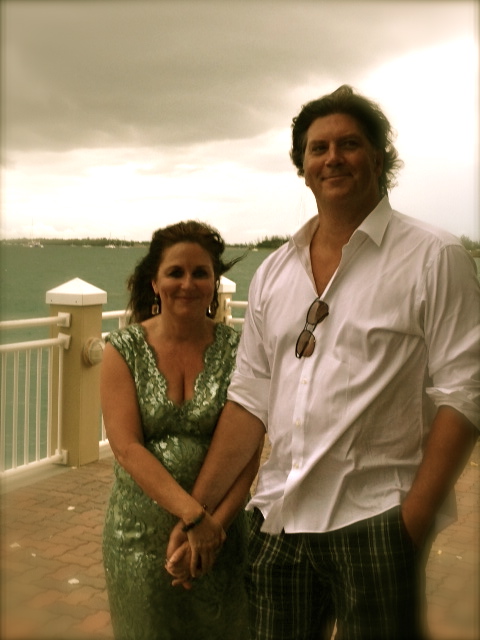
Wondering Who You Are
Andrew, TPS: What’s the name of the book?
Richard: “Wondering Who You Are.”
Esther, TPS: I have read it. I can imagine how that would happen for you, Richard. In just listening to the 2 of you, I realize that while absolutely not as traumatic a change in the relationship as you guys had, the evolution of any loving relationship as you get older, as there is a diagnosis — Andrew’s had 2 of them — that I think you’re right, Sonya, that there’s a measure of grieving that goes on for former self or selves.
I think the way that love plays into all of that is if there’s truly this loving relationship between two people, you have to be honest about how you feel about that loss. It’s not a personal thing.
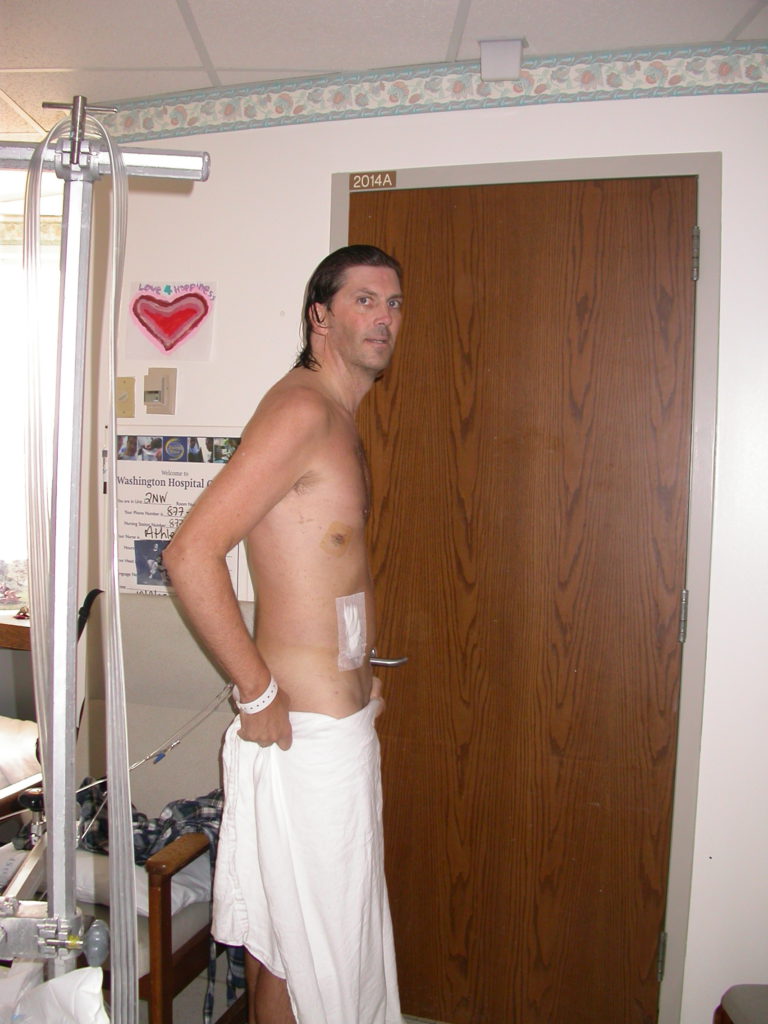
Andrew, TPS: The story, Richard, you told about reading the book, where you’re like one of the main characters —
Esther, TPS: He was the main character.
Andrew, TPS: It’s like, “Who is this guy?”
Sonya: We would give him passages in the book, and he would cry every time. I’m like, “This is your story.” Following the brain injury, he had such a beautiful sensitivity about him. It was so endearing to really not just me or the kids, just so many people. That was part of it. He was discovering his story for the first time, and that’s an absolutely magnificent thing to be able to watch.
I had a background in this also because I got sober 25 years ago. Part of that kind of recovery is you become aware of all the ways your identity is radically changing, and he had to get used to that at that point. There were just lots of changes that came about as a result of healing, but also writing about the book, sharing the book, and getting a sensibility about what really happened here.
The other strange thing I just want to say is that it was very unusual for me to see how he reacted to the book and what his awareness was about his own story.
Then I had a later reaction, which was, “Oh my gosh, what would have happened if I wouldn’t have told him his story?”
He then attached to the memories, and then that’s what becomes our personality, right? That kind of capsule of our identity that we show to the world. I became curious about what he would have been like if I had never shared that part of him.
In brain injury, you do have to rebuild a personality, or else you don’t know how to engage with the world. Richard very much wanted to re-engage with the world afterwards. I felt a loss there, too. We encourage that side of him to come forward as much as possible — the story that wasn’t given to him, but the story that’s emerging nonetheless.
I think that’s a real gift in any relationship where there’s a disease process and the healing process happening. Give someone space to be who they are, even though you don’t recognize where that history or where that shape of that story is coming from.
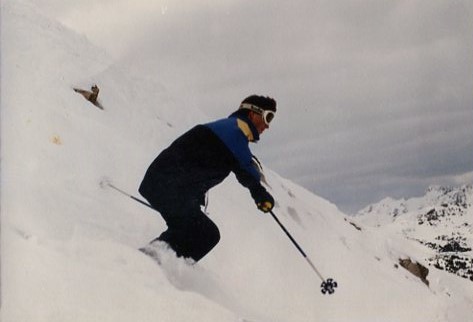
Sharing life again
Andrew, TPS: In a separate interview that I’ve done with Richard, he describes how he’s gotten back to a lot of the physical activity he loves to do, some with you. Hiking, biking, [skiing]. What’s it like now to have this man back — or even a little different man — when you’re out there doing one of these physical activities in such a beautiful setting, where you live in Banff?
Sonya: It’s phenomenal to be able to share life, period, after something that takes you so close to death. I do think that Richard died on the table. I kind of woke up out of that thinking that [with] the way that he is now… every day is a bonus day. It doesn’t really matter what it is that we’re doing. It really is something. Even if it’s a really crappy time, we get to have it together, and that feels huge to me.
Living that close to the wilderness, being able to be in nature is really critical to my writing [and] critical to who I am as a human being. We share probably so many more activities that we never shared before because we had really busy lives. This has involved a lot of slowing down and paying attention.
Esther, TPS: I think we’re doing some of that, too.
Accepting love and giving back
Andrew, TPS: Richard, as you become aware over the years, this devoted relationship from your wife — as the cancer survivor, you have to kind of accept the love.
Richard: Yes.
Andrew, TPS: How did you get to that, from being childlike almost to being accepting and giving back?
Richard: It took me a lot of years. I would say, 10 years after the surgery. I can’t say exactly, but there was a point at which our relationship actually became mature enough again, where I could be curious about whether I loved Sonya as much as I’d loved her before. And I did.
The love was obviously a little different, but there’s no question that the curiosity actually became important to me as well. I think Sonya would say the same thing [about] her curiosity. She found that she fell in love with the new person, the new Richard, as much as I fell in love with her. I think that that’s been marvelous.
I would say that we probably have had 4 different marriages over the course of our lives together in terms of our personality changes and things that we’ve been through over the course of the numbers of years that we’ve been together.
Andrew, TPS: Maybe you need a new wedding celebration sometime.

Richard: We actually redid our vows a couple of years ago. We went up on a hike [by] a lake and redid our vows just to kind of recommit ourselves to each other.
Andrew, TPS: How beautiful. Love, we believe, plays a role. Sonya, you said [for] some people, [it] doesn’t work when they’re challenged with cancer in the family. I’m so glad it has worked for you. Thank you, Esther. [I’m glad] that it works in ours.
Hopefully, this has been a story that people will remember. They’ll look up your book. Now they know the main character, Richard. It’s really fascinating. We wish you well as you go on with your life that you have now. Maybe different in some ways, different people in some ways, but still with love as a tremendous bond. It’s really beautiful.
Esther, TPS: It is.
Andrew, TPS: Sonya and Richard, cancer friends in Banff, Canada, and moving on with their life. Andrew and Esther here in San Diego, tied with love as well, and we hope that’s true for you.

Inspired by Sonya & Richard's story?
Share your story, too!
